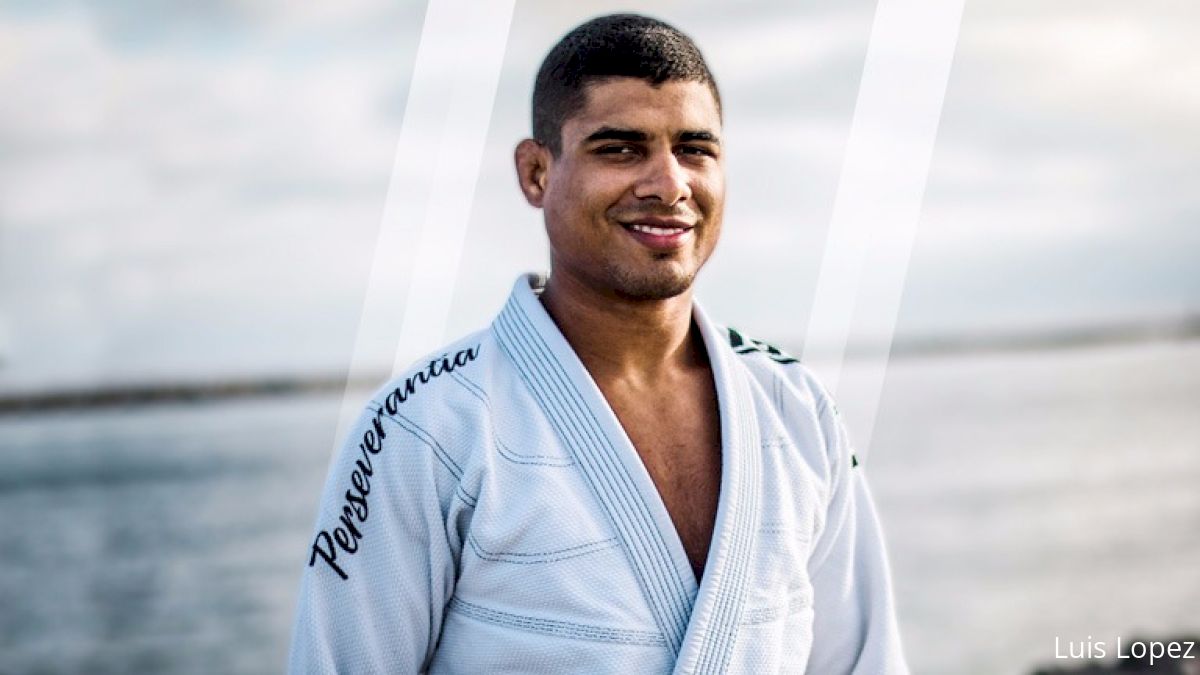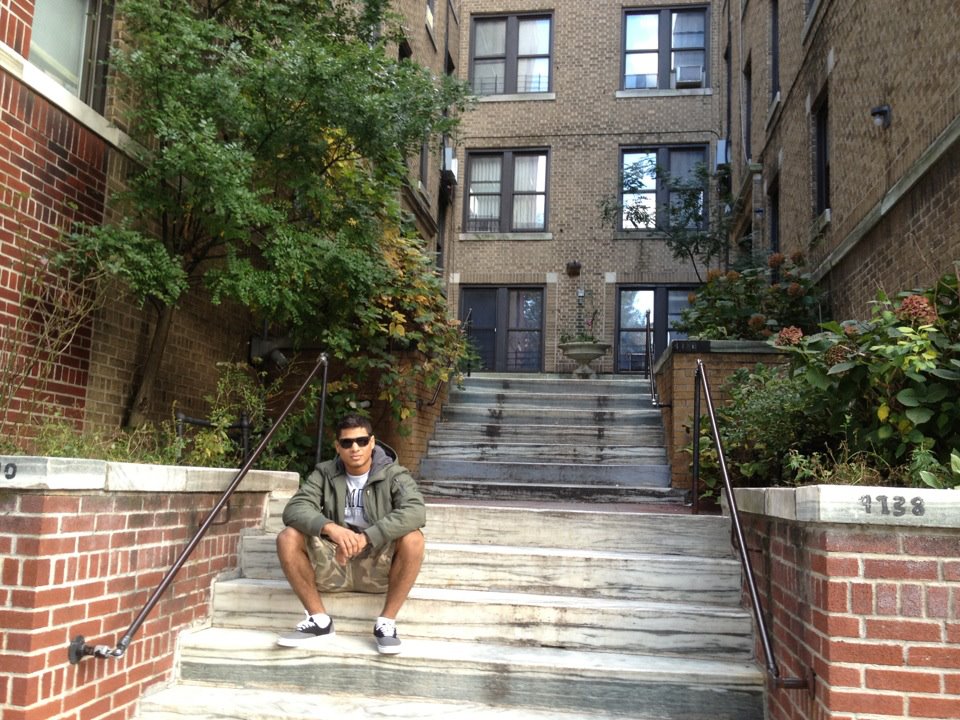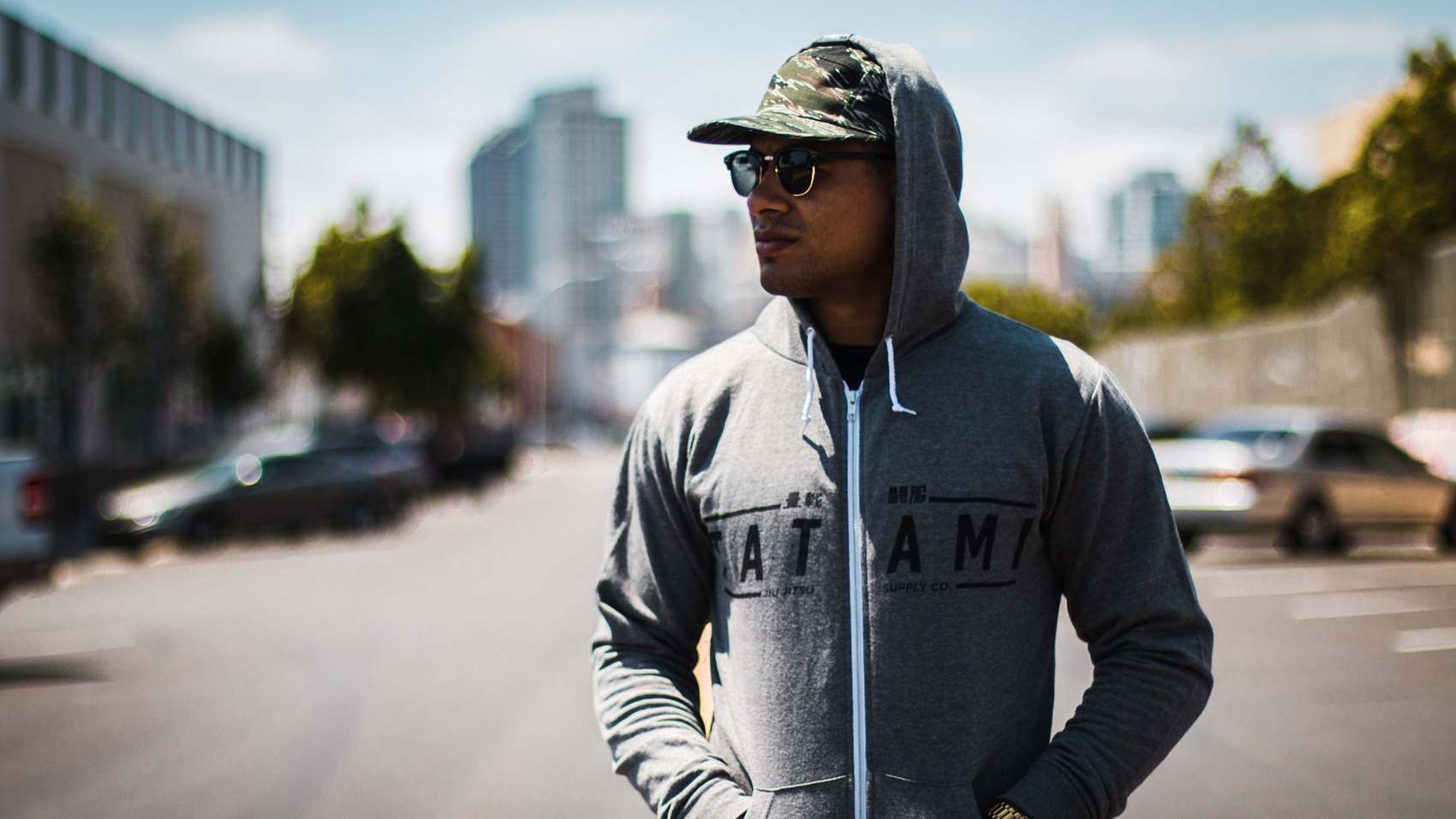Jiu-Jitsu & The American Dream: The Story of JT Torres
Jiu-Jitsu & The American Dream: The Story of JT Torres
Jonathan 'JT' Torres is one of the best-known American-born competitive black belts. The 27-year-old grappler -- an IBJJF Pan American champion, European champion, and World and Pan No-Gi champion -- is one of the principal figures in Andre Galvao's squad

Jonathan "JT" Torres is one of the best-known American-born, competitive black belts. The 27-year-old grappler -- who is an IBJJF Pan American champion, European champion, and World and Pan No-Gi champion -- is one of the principal figures in Andre Galvao's squad of elite grapplers fighting out of Atos San Diego in California.
Torres recently announced he would return to his native East Coast to open a gym. So to honor his homecoming, we look back at his journey in the sport of jiu-jitsu. Sit back and enjoy the full, unfiltered story of JT Torres.
PART I
Sometime during the winter of 2005, William Torres drove his beat-up Toyota Camry 20 miles through a snowstorm, the car slipping and sliding along the road, in order to take his teenage son, JT, to jiu-jitsu class.
It wasn't the first time they made the trip, nor was it the last. It was just one of many moments that would ultimately shape the life and career of the future world-class jiu-jitsu black belt.
Step back 16 years. JT Torres, the son of Puerto Rican migrants, was born on September 2, 1989, in Our Lady of Mercy Hospital in the Bronx, New York. Until the age of 12, his world consisted of just a few square blocks of concrete jungle.
Torres, his parents, and his sister all shared a one-bedroom apartment across the street from where he was born. The school he attended -- Public School 103 -- was also across from the apartment complex where he lived. He fell asleep every night to the sounds of the street.
The Bronx in the 90s was growing. The population at the time was a third African American and a third Latin American, with the remaining third white and Asian. It was a melting pot of peoples and cultures that gave birth to exciting art and music -- like the hip-hop that would become one of JT's passions -- but it was also one of the poorest and roughest neighborhoods in New York City.
"Growing up, they would tell me: 'You always keep your hands to yourself, unless they hit you first. You always stand up for yourself, but we don't want you causing trouble,'" Torres said.
Nevertheless, his parents realized that to keep their children on a straight line they needed to move the family out of the city and into a better school system.
 JT Torres sits on the steps of the building where he was raised in the Bronx, NY. Torres and his three family members shared a one-bedroom apartment. (Personal archive)
JT Torres sits on the steps of the building where he was raised in the Bronx, NY. Torres and his three family members shared a one-bedroom apartment. (Personal archive)
Just before JT entered his first year of middle school, the Torres family moved to Rockland County, about half an hour away from the Bronx and in the middle of suburbia. It might as well have been another country to Torres.
But adjust he did, and after two years of speech therapy he lost his New York accent almost completely. Now Torres has to explain to friends and fans why a New York City boy doesn't sound like he's from New York City.
 (Photo by Luis Lopez)
(Photo by Luis Lopez)
It was during this same time that Torres discovered martial arts. When his cousin (and closest friend at the time) began taking karate lessons at a dojo down the street, he decided to follow suit. However, this wasn't just an ordinary karate dojo.
Torres could have easily quit martial arts altogether if his dad hadn't stepped in. William Torres had become familiar with jiu-jitsu and mixed martial arts through watching the UFC, which was steadily gaining in popularity among the general public. This was the era when UFC legends like Vitor Belfort, Tito Ortiz, Randy Couture, Matt Hughes ,and B.J. Penn were dominating the Octagon. Gracie had recently been inducted into the UFC Hall of Fame. Even before then, William Torres had some familiarity with the martial arts, as he shared the same dorm as the Iowa State wrestling team during his college years.
[album albumId="450356"]
"When I quit karate, my dad was like, 'Listen, you need to do something to stay in shape, why don't you go back to the karate dojo and try that jiu-jitsu stuff out?'" JT Torres said.
After some convincing, JT gave in.
Clemente taught jiu-jitsu just one day of the week. The day that Torres stepped into his first jiu-jitsu class would completely change the direction of his life.
"I tried out for basketball, I tried out for little league baseball, I tried to play football, I tried to skateboard, and I liked it -- but I had never enjoyed it," Torres said. "When I did karate, I liked it. And then I did jiu-jitsu, and I loved it."
At 15 years old, Torres became obsessed with jiu-jitsu.
Fast forward a mere six months, Torres received his blue belt from none other than Gracie, whom Clemente brought in to conduct a seminar.
"I felt like I had just won the world championships as a black belt!" Torres said. "Especially having seen this guy on TV, choking other people out inside of a cage. At the time, he was the best jiu-jitsu fighter I knew."
With this inspiration, Torres was determined to become one of the best in the world.
Jiu-jitsu consumed his every waking moment. He studied everything he could get his hands on and watched the UFC religiously, even drilling on whatever could serve as a makeshift grappling dummy.
Then his parents divorced.
Read Part II and Part III
Torres recently announced he would return to his native East Coast to open a gym. So to honor his homecoming, we look back at his journey in the sport of jiu-jitsu. Sit back and enjoy the full, unfiltered story of JT Torres.
PART I
Sometime during the winter of 2005, William Torres drove his beat-up Toyota Camry 20 miles through a snowstorm, the car slipping and sliding along the road, in order to take his teenage son, JT, to jiu-jitsu class.
It wasn't the first time they made the trip, nor was it the last. It was just one of many moments that would ultimately shape the life and career of the future world-class jiu-jitsu black belt.
Step back 16 years. JT Torres, the son of Puerto Rican migrants, was born on September 2, 1989, in Our Lady of Mercy Hospital in the Bronx, New York. Until the age of 12, his world consisted of just a few square blocks of concrete jungle.
Torres, his parents, and his sister all shared a one-bedroom apartment across the street from where he was born. The school he attended -- Public School 103 -- was also across from the apartment complex where he lived. He fell asleep every night to the sounds of the street.
The Bronx in the 90s was growing. The population at the time was a third African American and a third Latin American, with the remaining third white and Asian. It was a melting pot of peoples and cultures that gave birth to exciting art and music -- like the hip-hop that would become one of JT's passions -- but it was also one of the poorest and roughest neighborhoods in New York City.
Living in the Bronx, it was fun. I credit the Bronx for the person that I am. You had to be tough to hold your own there.JT wasn't one to be picked on, but he wasn't a troublemaker either. His parents maintained their Puerto Rican family values, and his dad kept a strict but fair household.
"Growing up, they would tell me: 'You always keep your hands to yourself, unless they hit you first. You always stand up for yourself, but we don't want you causing trouble,'" Torres said.
Nevertheless, his parents realized that to keep their children on a straight line they needed to move the family out of the city and into a better school system.
 JT Torres sits on the steps of the building where he was raised in the Bronx, NY. Torres and his three family members shared a one-bedroom apartment. (Personal archive)
JT Torres sits on the steps of the building where he was raised in the Bronx, NY. Torres and his three family members shared a one-bedroom apartment. (Personal archive) Just before JT entered his first year of middle school, the Torres family moved to Rockland County, about half an hour away from the Bronx and in the middle of suburbia. It might as well have been another country to Torres.
I remember almost a culture shock at first. I was so used to the city life, the urban life, and then I was transplanted into a whole different world. It took some time for me to adjust."I remember when I first entered the sixth grade, the school system contacted my parents and they were like, 'Listen, we want to put your son in speech therapy' because I had such a thick New York City accent, and I used to pronounce things funny. Like the letters 'th' for example... We say the word 'both', but I would say 'bof', like 'Bof of us are going to the park.'"
But adjust he did, and after two years of speech therapy he lost his New York accent almost completely. Now Torres has to explain to friends and fans why a New York City boy doesn't sound like he's from New York City.
 (Photo by Luis Lopez)
(Photo by Luis Lopez)It was during this same time that Torres discovered martial arts. When his cousin (and closest friend at the time) began taking karate lessons at a dojo down the street, he decided to follow suit. However, this wasn't just an ordinary karate dojo.
When I started doing karate, my sensei was this guy named Peter Clemente. He was the first person who introduced me to martial arts. He was a 'no BS' kind of guy. He was hardcore. He was into no-holds-barred fighting, and he used to fight with bare fists in rings and stuff like that. And I didn't know it at the time, but he was also involved with jiu-jitsu. He was a blue belt under Royce Gracie.After four years of training, Torres received his black belt in karate from Clemente. By that time Torres was about to enter high school. Being a karate black belt wasn't considered "cool" anymore. So he quit.
Torres could have easily quit martial arts altogether if his dad hadn't stepped in. William Torres had become familiar with jiu-jitsu and mixed martial arts through watching the UFC, which was steadily gaining in popularity among the general public. This was the era when UFC legends like Vitor Belfort, Tito Ortiz, Randy Couture, Matt Hughes ,and B.J. Penn were dominating the Octagon. Gracie had recently been inducted into the UFC Hall of Fame. Even before then, William Torres had some familiarity with the martial arts, as he shared the same dorm as the Iowa State wrestling team during his college years.
[album albumId="450356"]
"When I quit karate, my dad was like, 'Listen, you need to do something to stay in shape, why don't you go back to the karate dojo and try that jiu-jitsu stuff out?'" JT Torres said.
After some convincing, JT gave in.
Clemente taught jiu-jitsu just one day of the week. The day that Torres stepped into his first jiu-jitsu class would completely change the direction of his life.
"I tried out for basketball, I tried out for little league baseball, I tried to play football, I tried to skateboard, and I liked it -- but I had never enjoyed it," Torres said. "When I did karate, I liked it. And then I did jiu-jitsu, and I loved it."
At 15 years old, Torres became obsessed with jiu-jitsu.
Fast forward a mere six months, Torres received his blue belt from none other than Gracie, whom Clemente brought in to conduct a seminar.
"I felt like I had just won the world championships as a black belt!" Torres said. "Especially having seen this guy on TV, choking other people out inside of a cage. At the time, he was the best jiu-jitsu fighter I knew."
With this inspiration, Torres was determined to become one of the best in the world.
Jiu-jitsu consumed his every waking moment. He studied everything he could get his hands on and watched the UFC religiously, even drilling on whatever could serve as a makeshift grappling dummy.
I remember sitting in class. In New York it would get super cold during the winters, so I would hang my jacket on the back of my seat. And I would be practicing kimuras on the sleeves of my jacket. I remember the teachers were like, 'Mr. Torres, what are you doing?'While some high school kids were going to house parties, trying beer and weed, creating cliques and socializing with others their age, Torres was spending all of his spare time on the mats and focusing on the next tournament. His closest friends were in their 30s and 40s, fellow students at the dojo. Everything seemed to going so well.
Then his parents divorced.
Read Part II and Part III